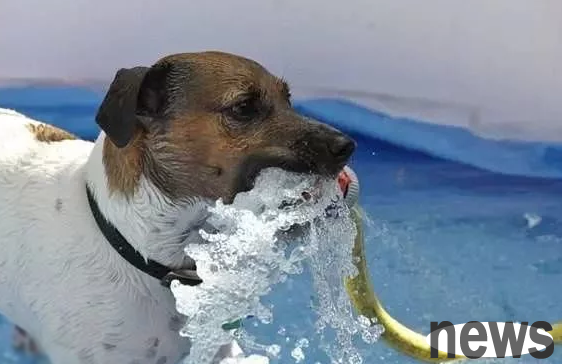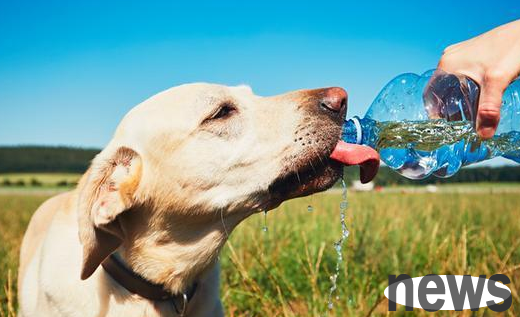The water poisoning disease in dogs refers to the increase in extracellular fluid capacity caused by the accumulation of water exceeding the required retention of sodium.

1. Causes of water poisoning in dogs:
Normal canine plasma osmotic pressure is very stable. Due to the regulation of nerves, endocrine, kidneys, etc., although excessive water intake will not cause water poisoning, water imbalance may occur in the following situations:
1. Excessive secretion of antiurea (ADH): mental stress, severe pain, various stress states (such as trauma, major surgery, etc.), decreased arterial pressure (such as bleeding, shock), acute severe infection or drug stimulation (such as acetylcholine and cholinergic drugs, morphine, lemdine, barbiturates, etc.) can all cause ADH secretion. On this basis, if there is too much fluid replenishment, water poisoning may occur.
2. Insufficient renal blood flow causes water retention: It is common in the oligouric period of renal failure, the end stage of chronic nephritis and urethral obstruction. If large amounts of water supply can cause water retention;
3. Resilient congestive heart failure and cirrhosis ascites, water retention is often found, especially those who have long-term restrictions on sodium salt intake or frequent use of diuretics without restricting water intake, water poisoning may occur.
4. Adrenal cortex is hypofunctioning, glucocorticoids (cortisol) have an antagonistic effect with ADH. If glucocorticoids are lacking, ADH will be enhanced (or secretion increased). When water intake (or input) excessive amounts, it is easy to cause water poisoning.

2. Clinical symptoms of dog water poisoning:
1. The main manifestations of dog water poisoning are: neurological symptoms: weak limbs, dull tendon reflexes or disappearance, and in severe cases, convulsions and coma, general edema, and reduced urine volume.
2. Laboratory examination: It can be found that the blood is thin, the plasma sodium is significantly reduced, and plasma protein, hemoglobin, and hemocytogenes are all reduced.
3. Prevention and treatment measures for dog water poisoning:
1. Mild water poisoning in dogs can be restored by themselves as long as the water supply is restricted.
2. In severe cases, hypertonic saline (3-5%) can be injected intravenously to alleviate the hypotonic state of extracellular fluid. If there is cerebral edema, you can also add dehydration agents such as mannitol.
